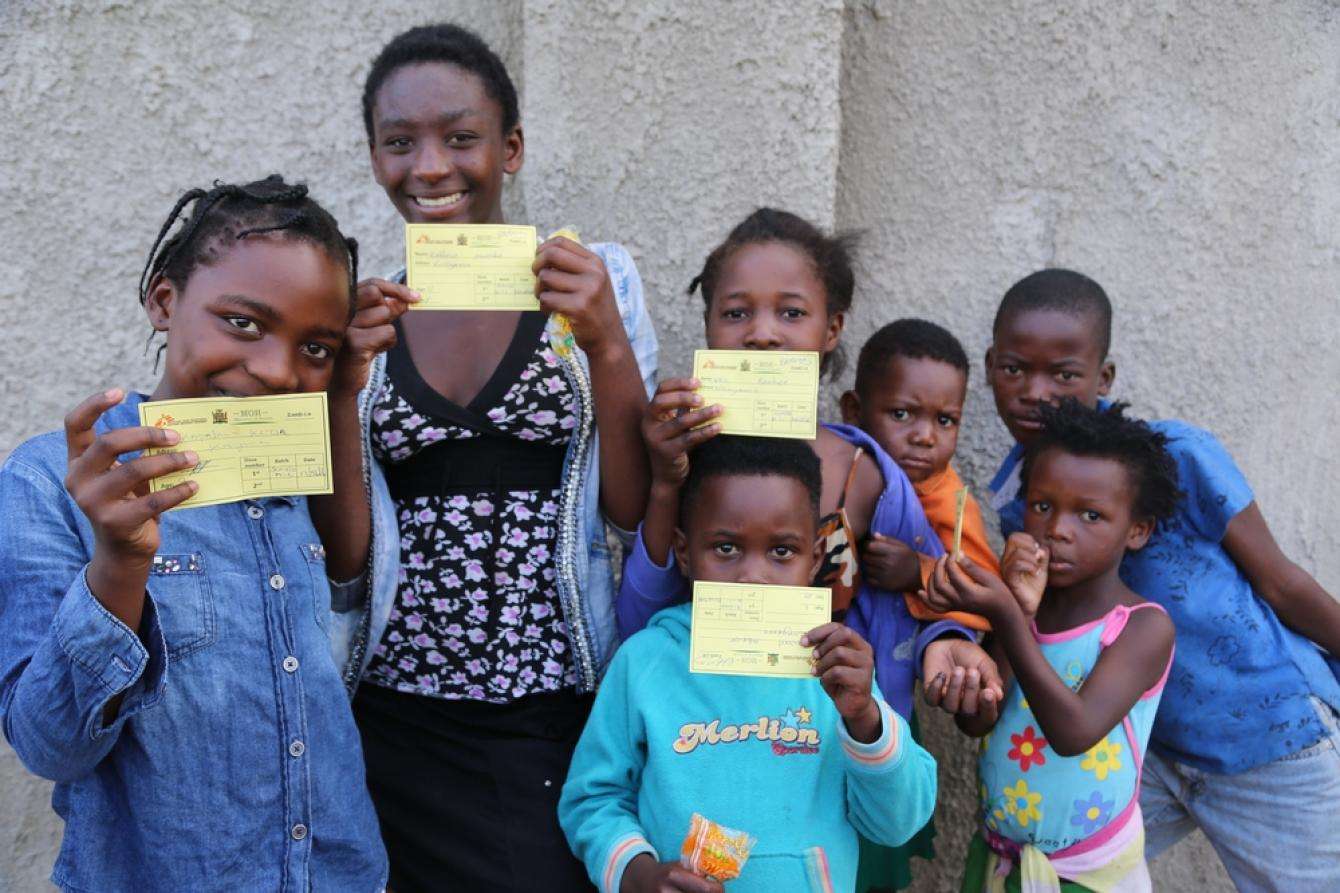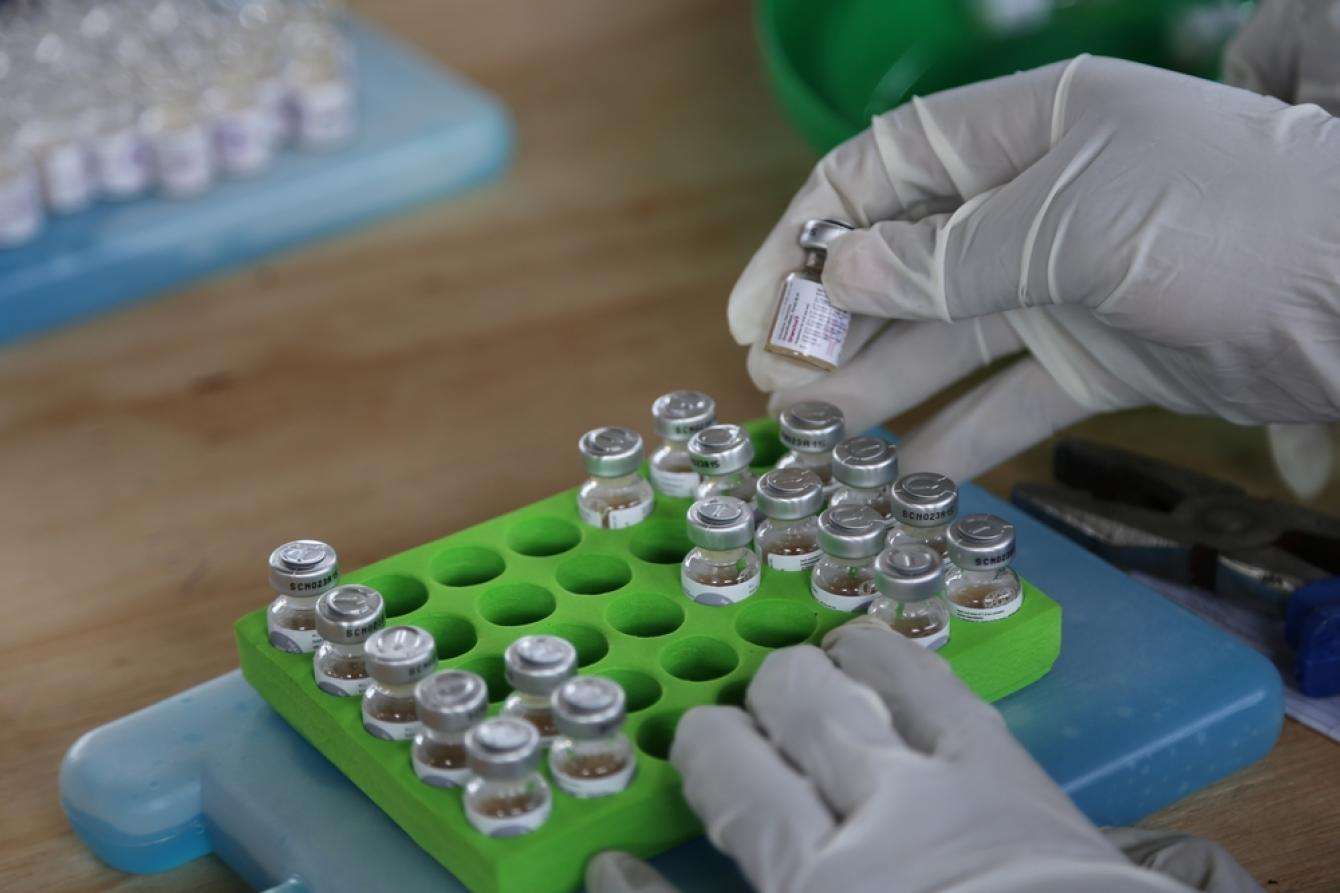When cholera broke out in the Zambian capital of Lusaka in February 2016, it seemed like a disaster foretold. Around 1.2 million people live in crowded urban settlements prone to flooding and the spread of disease. That year, the rainy season arrived late, causing boreholes to dry up and pushing people to draw water from shallow wells. When the rains finally did come, floodwaters mixed with overflowing pit latrines, creating rivers and lakes of contaminated water across the settlements. This was the ideal environment for a large-scale cholera outbreak.
Faced with the threat of a major cholera epidemic, the Zambian Ministry of Health requested assistance from MSF to halt the spread of disease. Working with the World Health Organization (WHO), MSF helped plan a massive campaign aiming to vaccinate some half a million people in Lusaka. However, at the time, the global emergency stockpile of the oral cholera vaccine was too limited to provide such a large at-risk population with the standard two doses. MSF recommended providing a single dose of the vaccine to ensure maximum coverage immediately, and to deliver a second dose later when more supplies became available. Earlier evidence indicated that a single dose delivered to twice as many people would quickly maximize so-called “herd immunity” and curb the epidemic.
The emergency strategy worked. Over a two-week period in April, MSF helped carry out one of the largest cholera vaccination campaigns ever—vaccinating 423,000 people in Lusaka. More than 100 MSF and Ministry of Health staff worked with 1,700 volunteers to implement the vaccination campaign. The health ministry also continued to provide care for patients at cholera 24 treatment centers and worked to improve sanitation and hygiene. Thanks to these coordinated and timely efforts, the outbreak was successfully brought under control.

This February, we published the results of a comprehensive study undertaken by MSF’s research arm Epicentre, the Zambian Ministry of Health, the Pasteur Institute, and the WHO examining the impact of the emergency intervention. The study found that the single dose campaign was nearly 90 percent effective for providing short-term protection during the outbreak. “According to these results, people vaccinated can be protected against cholera a few days after receiving one dose,” said Dr. Francisco Luquero, a medical epidemiologist at Epicentre. “This is important in outbreaks when we need to protect people quickly.”
The results are extremely hopeful, indicating that a limited supply of oral cholera vaccine can be stretched when necessary to save lives. “While the availability of vaccines has improved in recent years, the number is still far from being sufficient to tackle the large-scale outbreaks we are currently seeing, such as those currently ongoing in the Democratic Republic of Congo or Yemen,” Luquero said. “We are extremely encouraged by these results, which will mean more people can be protected from this potentially deadly disease.”
MSF was a pioneer in using an oral cholera vaccine in field settings, carrying out a feasibility study in 1997 among 44,000 South Sudanese refugees in Uganda. The breakthrough came in April 2012, when MSF worked with the Ministry of Health in Guinea to respond to a cholera epidemic—administering 316,250 doses of the oral cholera vaccine over a six-week period. An influential study of the campaign by Epicentre, published in 2014, found that the vaccine was 86 percent effective in protecting individuals, lending support to its use in control of future outbreaks.
“Now we know that oral cholera vaccine confers a high level of protection in outbreak settings, and that vaccinating
against this highly deadly disease can and should be one thing we do when we have a cholera epidemic on our hands, in addition to other preventive and control measures,” Luquero, principal investigator of the study, said at the time.

Meanwhile, in 2013, a global emergency stockpile of oral cholera vaccine was created under the supervision
of the International Coordination Group on Vaccine Provision—which includes the WHO and MSF, among other partners—strengthening the capacity for action in emergency settings. Today, the stockpile is attracting additional manufacturers,and Luquero thinks we are approaching a turning point.
“We are reaching an extremely important point where the scale of the campaigns may be sufficiently large to show impact in controlling the disease,” Luquero told Science magazine in a February interview. As vaccine supplies increase, it may be possible to expand the use of large-scale cholera vaccine campaigns in at-risk regions to protect people and prevent outbreaks before they start.





